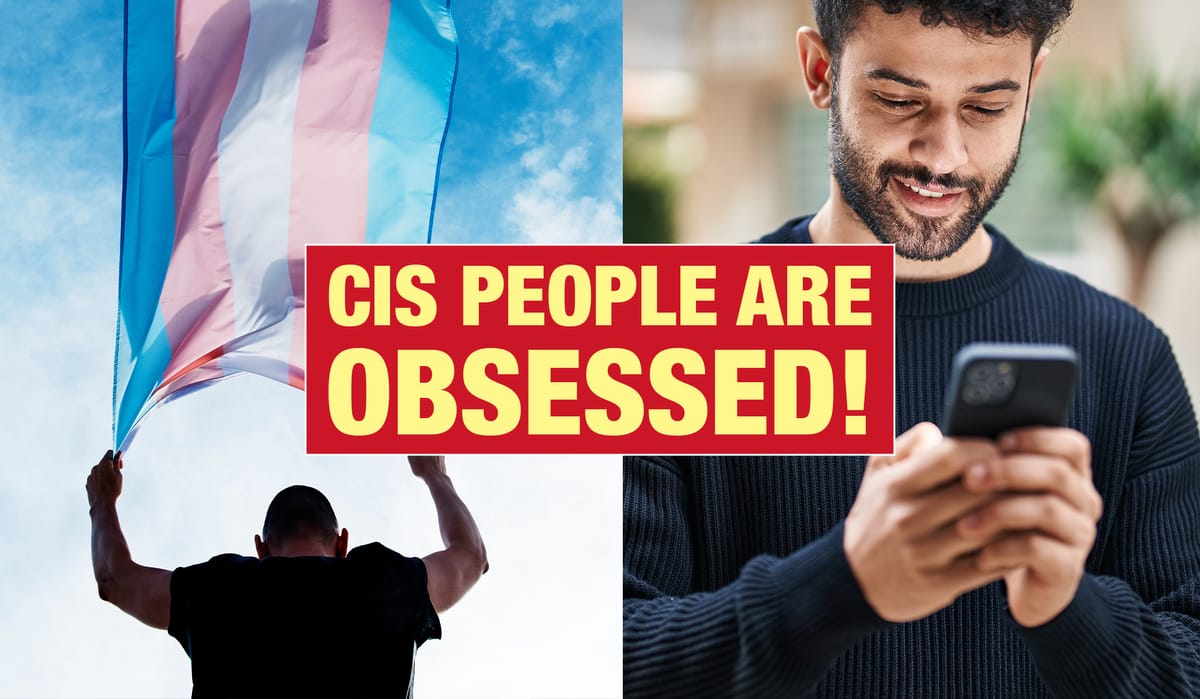The cis creators pretending to be trans online
PSA: Trans lives are not an experiment, and caricaturing transness has real-life consequences

Words: P. Eldridge
I lay in bed, late at night, with the plumes of cigarette smoke being sucked in and out of an open window. In the sinister recesses of a doom scroll, I find cisgender women masquerading as transgender women online in the name of "social experiment."
Ostensibly, it’s a video by Jacob Markovich, known for his ‘prank’ content, but I don’t fully understand what I’m seeing, even as I’m seeing it. A cis woman creates a dating profile, she doesn’t specify she’s a transgender woman, in the comfort of a home filled with shitty online content creator objects: a ring light, microphone, sound booth panelled walls, and a gaming chair with built in speakers. She taps at a phone screen, cropping images of her face, convincing me – the viewer – that she’s a beautiful woman with endless attention from the men she is matching with. Here we are, at the threshold of a crescendo. The text across the screen screams, we thought it would be funny, after she made out with them, to prank them by saying that she is transgender. I screenshot, limbs shaking, feeling my features sharpen, breathing for the first time in a minute, rattling around for someone to confer with that this is uploaded, real, that I’m not in a dissociative fugue, that my flushed skin is in fact burning because of the clang of this deplorable poison.
"I can’t help but feel the pang of dread, that this trick reduces my own – and many others’ – lived experiences to a theoretical exercise"
I’ve not been here before, the algorithm has afforded me the comfort of trans creator content that is earnest, resistant, advocatory. Yet here I am, succumbing to these performances, often framed as explorations of gender norms or personal inquiries into self-identity, provoking urgent questions about authenticity, privilege, and the consequences of digital performance. While some might defend these acts as attempts at radical critique or self-exploration, I can’t help but feel the pang of dread, that this trick reduces my own – and many others’ – lived experiences to a theoretical exercise, an experiment without real-world stakes. The implications reveal broader cultural anxieties about gender, power, and the commodification of identity.
